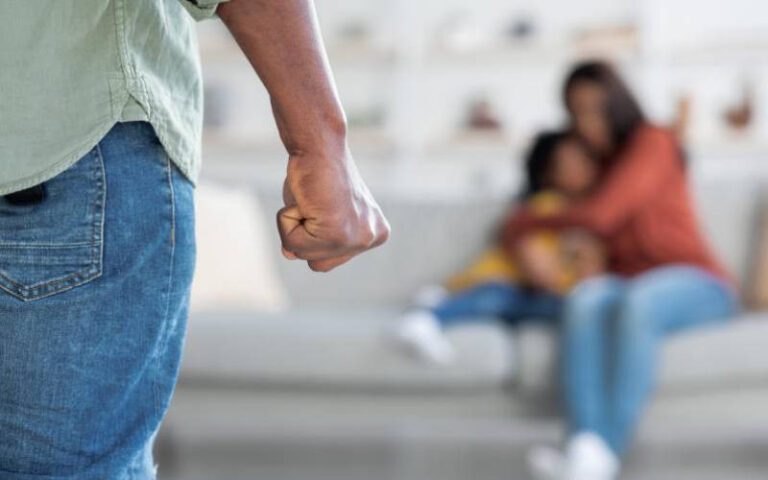Childhood experiences shape who we become as adults in profound ways. The happy memories can bring us joy for years to come, but unfortunately, traumatic events from our early years can leave deep scars that affect us well into adulthood.
Studies have consistently shown links between childhood trauma and long-term mental health issues like depression and anxiety. For example, research published in the Journal of Psychiatric Research found that adults who experienced childhood trauma were twice as likely to develop depression compared to those who didn’t.
Overcoming the wounds of difficult childhood experiences can be incredibly challenging. However, with the right support systems and tools, the process of healing becomes more achievable. This highlights the importance of finding resources and guidance that can aid in personal recovery and emotional resilience.
Understanding Childhood Trauma: Physical, emotional, sexual, and verbal abuse
Childhood trauma can take many forms, from physical violence to emotional neglect. Some common types include:
- Physical abuse: Any intentional use of physical force against a child
- Emotional abuse: Patterns of criticism, threats, or rejection that damage a child’s sense of worth
- Sexual abuse: Any sexual activity imposed on a child
- Verbal abuse: Yelling, name-calling, or other harmful language directed at a child
While these experiences are painful to think about, it’s important to acknowledge them. Ignoring trauma doesn’t make it go away – it just pushes the pain deeper inside.
The importance of addressing trauma early
Unresolved childhood trauma tends to get projected onto others as we get older, including our spouses, children, and other loved ones. We may lash out in anger, struggle to trust others, or have difficulty with intimacy.
By facing our trauma head-on, we can start to heal these old wounds and build healthier relationships. It’s never too late to start this process, but the sooner we begin, the better.
Emotional and Physical Neglect
Growing up in an environment where your emotional or physical needs weren’t met can leave lasting scars. As a child, you may have felt abandoned, worthless, or that you couldn’t trust others to be there for you.
These feelings often follow us into adulthood, making it hard to form close bonds. We might push people away out of fear of being hurt again. Or we may cling too tightly to relationships, worried they’ll leave us like our caregivers did.
I remember feeling so alone as a kid, even when surrounded by family. It took years of work to learn that I deserved love and care. If you’re struggling with similar issues, please know that you’re not alone and that healing is possible.
Abuse and Its Lasting Effects
The impact of abuse, whether physical, emotional, sexual, or verbal, runs deep. It can shatter our self-esteem, lead to intense anxiety, and cause a range of mental health issues that persist for years.
As an adult survivor of childhood abuse, you might find yourself struggling with:
- Low self-worth
- Difficulty trusting others
- Anxiety or depression
- Unhealthy relationship patterns
- Substance abuse issues
These are normal responses to abnormal situations you endured as a child. But you don’t have to let them define your future. Therapy and other forms of professional help can be incredibly valuable in addressing these deep-rooted issues.
The Trauma of Losing a Loved One
Losing a parent, sibling, or other close family member during childhood is an incredibly painful experience that can have lasting effects into adulthood. The grief process for children is often complicated and may be interrupted or delayed.
As an adult, you might find yourself still grappling with that loss years later. You may struggle with:
- Intense feelings of sadness or anger
- Fear of losing other loved ones
- Difficulty forming close relationships
It’s important to allow yourself to grieve, even if many years have passed since the loss. If you find that the pain is still affecting your daily life and mental health, seeking help from a grief counselor or therapist can be incredibly beneficial.
The Impact of Bullying
Being bullied as a child can have far-reaching effects on mental health and social relationships. The constant criticism and social rejection can deeply damage self-esteem, leading to issues that persist long after the bullying has stopped.
Adults who experienced bullying in childhood may struggle with:
- Social anxiety
- Depression
- Difficulty forming friendships or romantic relationships
- Low self-confidence
If you’re dealing with the long-term effects of bullying, know that you’re not alone. Many adults are working to overcome similar challenges. Support groups and therapy can be great resources for healing and building social confidence.
The Importance of Professional Help
While friends and family can offer valuable support, professional help is often crucial in addressing childhood trauma. Therapists and counselors have specialized training to help you process your experiences and develop healthier coping mechanisms.
Some helpful forms of therapy for childhood trauma include:
- Cognitive-behavioral therapy (CBT)
- Eye Movement Desensitization and Reprocessing (EMDR)
- Trauma-focused therapy
Support groups can also be incredibly valuable, allowing you to connect with others who have similar experiences. Remember, seeking help is a sign of strength, not weakness.
Conclusion: Healing and Personal Growth
Overcoming childhood trauma is a journey, not a destination. It takes time, patience, and often professional support. But with each step forward, you’re reclaiming your life and opening the door to healthier, happier relationships.
If you’re struggling with the effects of childhood trauma, I encourage you to reach out for help. Whether it’s talking to a trusted friend, joining a support group, or starting therapy, taking that first step can make a world of difference.
Remember, your past experiences may have shaped you, but they don’t have to define your future. Healing is possible, and you deserve to live a life full of joy, love, and meaningful connections.

